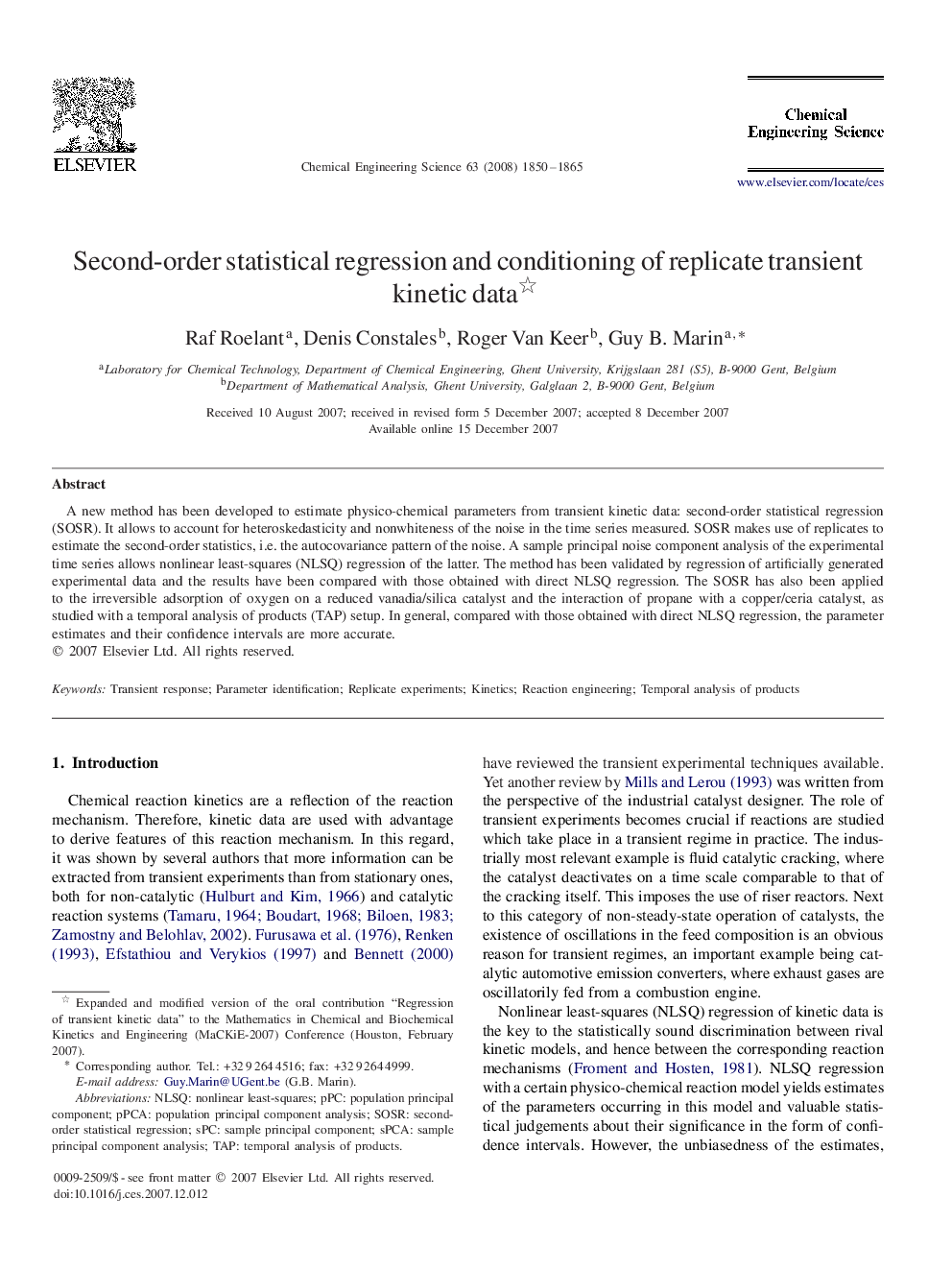| Article ID | Journal | Published Year | Pages | File Type |
|---|---|---|---|---|
| 158250 | Chemical Engineering Science | 2008 | 16 Pages |
A new method has been developed to estimate physico-chemical parameters from transient kinetic data: second-order statistical regression (SOSR). It allows to account for heteroskedasticity and nonwhiteness of the noise in the time series measured. SOSR makes use of replicates to estimate the second-order statistics, i.e. the autocovariance pattern of the noise. A sample principal noise component analysis of the experimental time series allows nonlinear least-squares (NLSQ) regression of the latter. The method has been validated by regression of artificially generated experimental data and the results have been compared with those obtained with direct NLSQ regression. The SOSR has also been applied to the irreversible adsorption of oxygen on a reduced vanadia/silica catalyst and the interaction of propane with a copper/ceria catalyst, as studied with a temporal analysis of products (TAP) setup. In general, compared with those obtained with direct NLSQ regression, the parameter estimates and their confidence intervals are more accurate.
